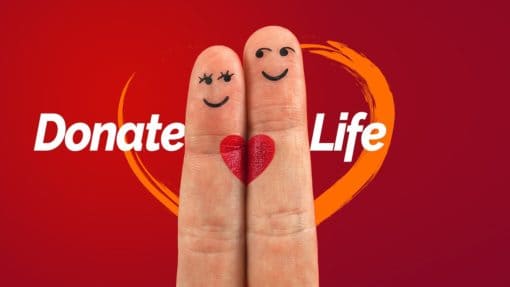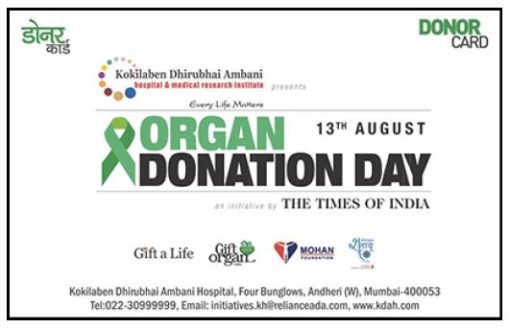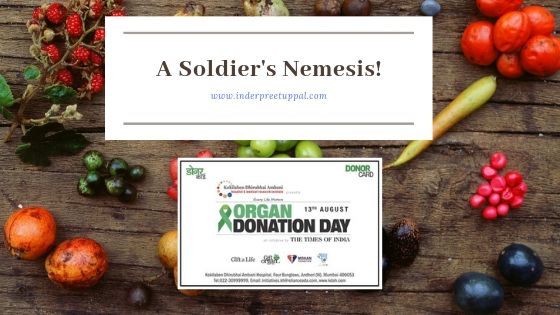.
On this #WorldOrganDonationDay a few verses about how a soldier can be helpless in a world that is careless.
.

He was fighting a losing battle, one he thought of defeating every day.
He hoped and inquired every day, hoping that today would be the day he would win.
He would hear the good news that his saviour had died!
Yes, all that he could think of was about people dying.
Of a family who would come to assure him that a member of their family was dead and he would live.
The family was giving him the organ he so desperately wanted to for living.
He would think of nothing else – just death.
All his prayers and all his contacts had come to nothing; he could not find a donor.
He was too weak to search, too poor to bribe & too simple to generate publicity.
He did not know the wilful and shameful ways of people who jumped waiting lists and bribed the doctors.
He did not know how to tell his family to stop expecting him to come back from the hospital.
He did not know how to tell people that they all should pledge to donate their organs.
He did not know how to tell people that he just wanted to live this life while they had the choice to live beyond their life.
He was just a soldier waiting to defeat death so he could go and face it at the border.
He was a soldier trained to kill the enemy but how could he kill what was killing him from the inside?
.

.
Click here to pledge yourself and you shall get your organ donor card delivered to your home.
.
Here are some basic questions about #WorldOrganDonationDay answered by the organ donation website:
Who can be a donor?
All of us can be organ donors, irrespective of age, caste, religion, community, current or past medical condition. Children can also be organ donors after taking consent for organ donation from their parents.
However active cancer, active HIV, active infection (for example, sepsis) or Intravenous (IV) drug use are some of the contra-indications. Patients who have Hepatitis C may still donate organs to a patient who also has Hepatitis C. The same is true for Hepatitis B — but this happens in very rare cases. Most cancer patients may donate corneas.
What is the importance of a donor registry?
A registry is an essential part of understanding who and where potential donors are. A registry gives a planner enough information to devise strategies to get more public cooperation and commitment towards organ donation. Having a registry in place allows doctors and transplant coordinators to check if a brain dead person wished to donate and then approaching the family for consent becomes easier. It helps in saving crucial time in the process of organ donation. At present, we do not have a central registry in India. Through this initiative, we intend to make the government of India create one.
How does organ donation help families of deceased donors to cope with their loss?
The act of organ donation has the ability to comfort grieving families. It is always difficult to lose a loved one. Many grieving families of organ donors draw comfort from the fact that their loss may help to save or improve the lives of others. Studies carried out to understand how a family heals have shown that the support from family members helps a person to overcome grief. The support of friends and religious and cultural beliefs also help donor families. Most of the donor families agreed to donate organs because they felt that it was the only positive outcome from their loss.
For more details go here – https://organdonationday.in/about/faqs
Organ Donation. A Divine Intervention
#WorldOrganDonationDay
Images courtesy Canva (c) Indywrites.
| Click to pledge! |
Last updated on 13/08/2019




